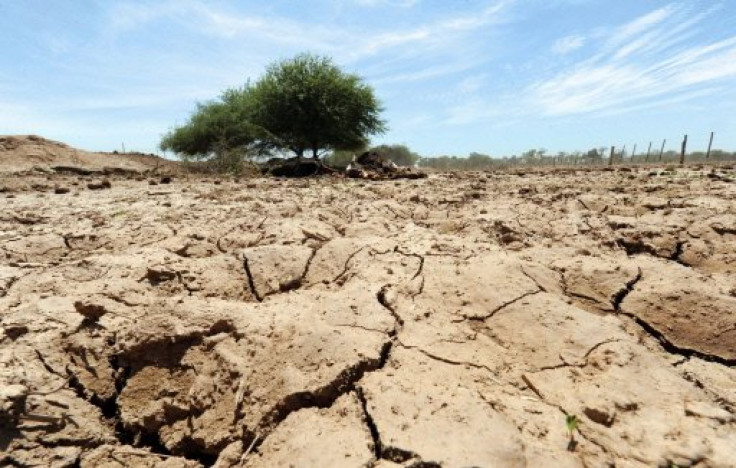Drought Decimates Crops In Latin America, Pushing Up Prices Of Corn And Soy

In a continent ravaged by hurricanes and earthquakes on a yearly basis, drought does not make the cut for the list of natural disasters to watch out for. It should, though: According to the United Nations Food and Agriculture Organization, which has just published a new report on the matter, the lack of water in Latin America causes just as much damage as any other natural disaster.
As a consequence of drought, 2 billion people in the world have suffered, while 11 million have died. Last year the U.S. experienced its worst drought in half a century, and drought was also felt in South America: Argentina and Brazil’s soy and corn plantations were decimated, limiting the supply that usually meets half the world’s demand for both products.
Recent droughts have caused food prices to spike. Corn prices grew 50 percent in 2012, and soybeans rose 25 percent, according to the World Bank. And it's just the beginning: According to the U.N., droughts have doubled since the 1980s. The “hydrologic cycle,” the concept that usually describes the movement of water on Earth, has been debunked by experts as illogical and unreliable.
Donald Wilhite, a climatologist that has been recognized as the main world expert in drought, explained the cycle in a different way. He said that panic is the first step in the cycle. Then, rain arrives and with it apathy. Neither citizens nor politicians feel the need to prepare for the next drought. But when it does come, panic returns.
Wilhite has been working on a pilot project with the World Bank in Brazil, which will build a system to monitor drought in Ceará, one of Brazil's driest provinces, in the northeast of the country. “With the data, it will be easier to make decisions and draft policies,” he said.
He thinks that Latin America is more prepared now than a decade ago, even if it is just in awareness. “Mexico has suffered wild droughts, and as soon as President Enrique Peña Nieto took charge he made drought one of the government’s priorities,” he said.
“This is the moment for Latin American nations to make changes to plans and evaluations on how to manage their resources in a preventive way,” said Wilhite. “Extreme events will come up with climate change, and reacting, as opposed to preventing, is very costly.”
© Copyright IBTimes 2024. All rights reserved.











